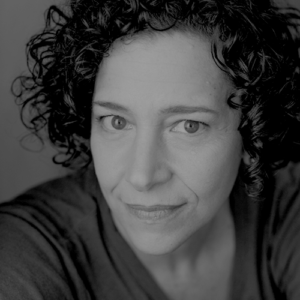
Have you ever thought about how much time you spend waiting? Waiting for an audition, waiting to see if you were called back, waiting for feedback, a call from your agent, a check… It’s an integral part of a career in acting that you’ll wait. Which is why it’s so important to know if you’re waiting for what you really want.
If you were anything like me, your answer could change drastically from year to year – sometimes from day to day. I went from wanting to be a nurse, to a teacher, to a bank teller (the stamp pad!), to someone named Carol Green who lived in Seattle (I have no idea why that was so specific and I didn’t even know where Seattle was), to an ornithologist, to a concert violinist, to an actor. Those are the ones I remember. Once we turn into ‘adults’, though, the question goes away – which is unfortunate, because it’s a valuable thing to continue checking in about. If I were to ask 3 different people what they thought it meant to be an actor – what that life would look like – I’d probably get 3 very different replies.

Very specifically and with great detail: from waking up to going to sleep and everything in between. Then, I ask everyone to highlight the elements of the day they’ve described that are the most important to them regardless of how trivial they might seem. At one time, an example for me was “I have coffee before I have to talk to anyone” at another, “I don’t have to ask anyone for permission to use the bathroom” or at another “I can use whatever scented soap I want.”
There are several good reasons for this exercise. First, you have a strong, specific set of goals that you can be working for to bring you toward the life you want. Second, you can be mindful of the incremental steps that you’re taking along the way to get closer to that life, and acknowledge yourself for achieving them. And third, you can determine if those goals do indeed bring you a life you consider ideal.
The second part of this exercise is to make a pie chart. Students draw a circle and then split it into these sections:
1. Amount of time you spend working at something you enjoy
2. Amount of time you spend working at something you don’t enjoy
3. Amount of time you spend doing things for others out of obligation or necessity
4. Amount of time you spend engaged in something completely for you that brings you joy, like a hobby or reading a book or getting a massage.
If only 5% of your time is spent on things that bring you joy, hopefully, several goals you’re working toward from the first exercise would bring that more into balance.
Now… what to do with these exercises?
If you’re the kind of person who keeps journals or notebooks, I highly recommend filing these exercises there and marking them so they’re easy to come back to. (For an extra perk, sign them and leave yourself a personal note. When you take time to look back at them later, I promise that in some way, you will be surprised). If you’re more of an online person, take a pic of the sheets of paper you’ve written on, and create an online notebook or journal for yourself. (I like Evernote: it’s got a great search function and is easy to access from your phone or computer.)
You might be surprised how much your ideal day changes; you might find that what you thought would be rewarding actually falls short; you might want something very different because of life changes such as relationship status, having kids, moving, or just more life experience.
Actors often talk about whether or not they’ve ‘made it’. Specifically, what does that even mean, though? Is it being rich? Is it owning a home? Is it getting a role in a movie? And if it is any of those things, what does it mean once you reach those goals? Then what are you striving for?
So much of an actor’s life is determined by choices other people make that it’s easy to feel they have no control at all over their quality of life. These exercises can help to remind us of things we can work toward and acknowledge from day to day that are just as important as whether or not you get called back for the next role.
A Director Tells: 15 Things You Should Know When You Are Auditioning
Does New Canadian Theatre Matter?


Jennifer Estlin has been involved in the entertainment business as an actress and producer since 1986. Following her graduation from Northwestern University’s School of Speech in 1987, she traveled to Edinburgh Scotland with the production of André Gregory's Alice! directed by David Schwimmer. Afterward, she spent three months traveling all over Europe until deciding to settle for a while in Paris, where she earned her living singing on the Parisian Metro for close to a year. Upon returning to Chicago, Jennifer spent several years working in many of Chicago’s theatres including The Annoyance, Northlight, and The Body Politic. She toured for two years with Second City’s National Touring company and was a company member on a Second City resident stage in Chicago and later in Las Vegas. Jennifer moved to New York in 1994 where she worked in Off-Broadway theatre, regional theatre around the country, as well as film, and television. She returned to Chicago in 2002 to become President, Executive Producer and owner of the Annoyance Theatre, and continues to work on film, television and stage. Jennifer has appeared as recurring characters Judge Cohen on Proven Innocent and Cathy Briscoe on NBC’s Law and Order, and also in shows such as Chicago PD, Empire, Late Night with Conan O’Brien, Exit 57, and in several national and regional commercials. Her film credits include Volcano, The Eyes, and the award winning short films A Million Miles Away,(Sundance) and The Cure (Slamdance).
Read Full Profile© 2021 TheatreArtLife. All rights reserved.

Thank you so much for reading, but you have now reached your free article limit for this month.
Our contributors are currently writing more articles for you to enjoy.
To keep reading, all you have to do is become a subscriber and then you can read unlimited articles anytime.
Your investment will help us continue to ignite connections across the globe in live entertainment and build this community for industry professionals.